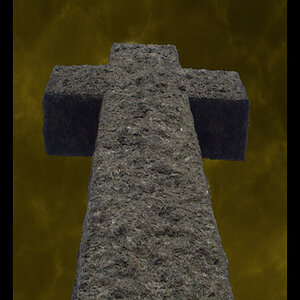- Joined
- Dec 11, 2006
- Messages
- 18,743
- Reaction score
- 8,047
- Location
- Mid-Atlantic US
- Website
- www.lewlortonphoto.com
- Can others edit my Photos
- Photos NOT OK to edit
There is an almost parallel discussion about the influence of technical knowledge on great photographers going onhere.
It is my opinion that technology is, like protein, necessary for growth in some degree but almost poisonous if taken in too large a dose.
There is this lure of technique and technical knowledge because, although it may be difficult, it can be conquered and from then on, one is in charge and fully competent.
Whereas, creativity can never be conquered, someone trying to create must always work hard at it, and the more you do, the steeper the creative hill to climb.
It is so tempting to fall back on the comfort of what one has already done, to produce what seems like new work but what is really the same old stuff.
Great photographers - and those who wish to be great but will settle for good - take technology only in doses prn (as needed) and push the rest away in favor of creative work.
It is my opinion that technology is, like protein, necessary for growth in some degree but almost poisonous if taken in too large a dose.
There is this lure of technique and technical knowledge because, although it may be difficult, it can be conquered and from then on, one is in charge and fully competent.
Whereas, creativity can never be conquered, someone trying to create must always work hard at it, and the more you do, the steeper the creative hill to climb.
It is so tempting to fall back on the comfort of what one has already done, to produce what seems like new work but what is really the same old stuff.
Great photographers - and those who wish to be great but will settle for good - take technology only in doses prn (as needed) and push the rest away in favor of creative work.
Last edited:









